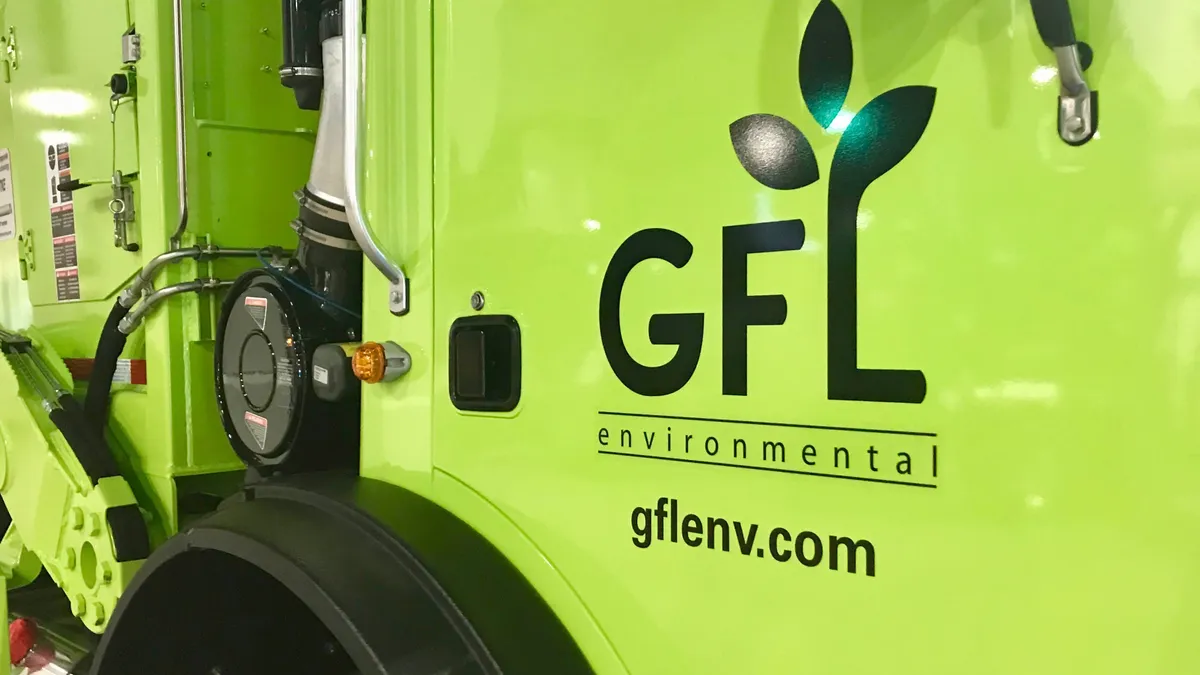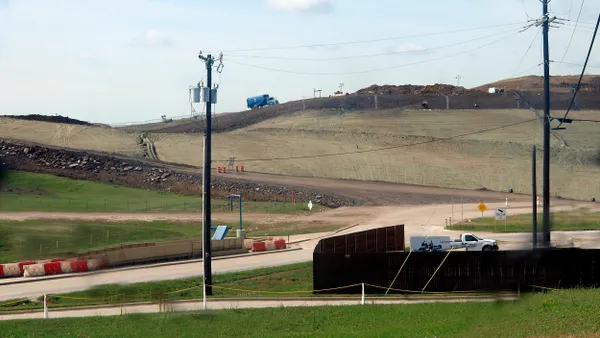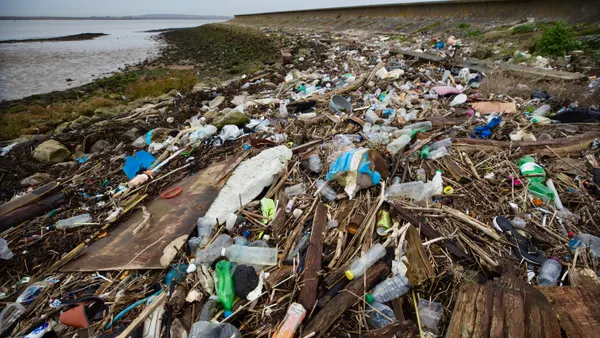UPDATE: Dec. 10, 2024: A federal judge approved a proposed agreement between GFL Environmental and the Southern Environmental Law Center on Dec. 5, the latter party announced. The consent decree “provides crucial relief” for neighbors of the company’s landfill in Sampson County, North Carolina, SELC said in a statement.
Dive Brief:
- Sept. 4: GFL Environmental has agreed to limit pollution coming from a large landfill it operates in Sampson County, North Carolina, according to an announcement from the Southern Environmental Law Center. The organization announced it would sue GFL earlier this year for alleged violations of the Resource Conservation and Recovery Act.
- In a proposed consent decree between the two parties, GFL has agreed to substantially decrease the amount of a certain perfluoroalkyl substance, or PFAS, that it is currently discharging via the landfill's leachate. It will also monitor methane emissions via drone.
- SELC filed the lawsuit against GFL on behalf of the Environmental Justice Community Action Network, which represents residents of the Snow Hill community who have fought the landfill.
Dive Insight:
GFL declined to comment on the lawsuit or consent decree. It has been responsible for the landfill since 2018, when it acquired Waste Industries. The landfill first opened in 1973 and today spans nearly 1,000 acres, according to SELC.
The decree said that PFAS contamination from the landfill stems, in part, from a Chemours facility in Fayetteville, North Carolina. That facility allegedly sent waste contaminated with the company's Gen X chemicals, a source of PFAS, to the landfill, causing the landfill leachate to become contaminated.
SELC's lawyers cited new U.S. EPA standards for PFAS contamination in drinking water that limits PFOA concentrations to 4 parts per trillion. GFL has agreed to meet that level, a reduction from its current PFOA contamination level of roughly 1,000 ppt, per the lawsuit. It has also agreed to stop accepting waste known to be contaminated with PFAS chemicals at the landfill.
As part of the agreement, GFL also would install a "continuous air pollution monitoring system" around the landfill's perimeter and use drones to monitor for methane hot spots. In addition to community outrage over water contamination, the landfill has also drawn criticism as one of the top methane pollution emitters among large U.S. landfills in recent years.
“This agreement brings long-sought relief from pollution and reparation to the Snow Hill community, putting resources and information in the community’s hands to care for their safety and health and start rebuilding after decades of ignored concerns,” EJCAN Executive Director Sherri White-Williamson said in a statement.
SELC lawyers first issued a notice of intent to sue GFL over the landfill’s pollution in February. The group filed its lawsuit against GFL at the same time as it filed the proposed consent decree on Aug. 30. The decree must be approved by a judge before it goes into effect.
Editor’s note: This story has been updated to reflect that GFL declined to comment.











